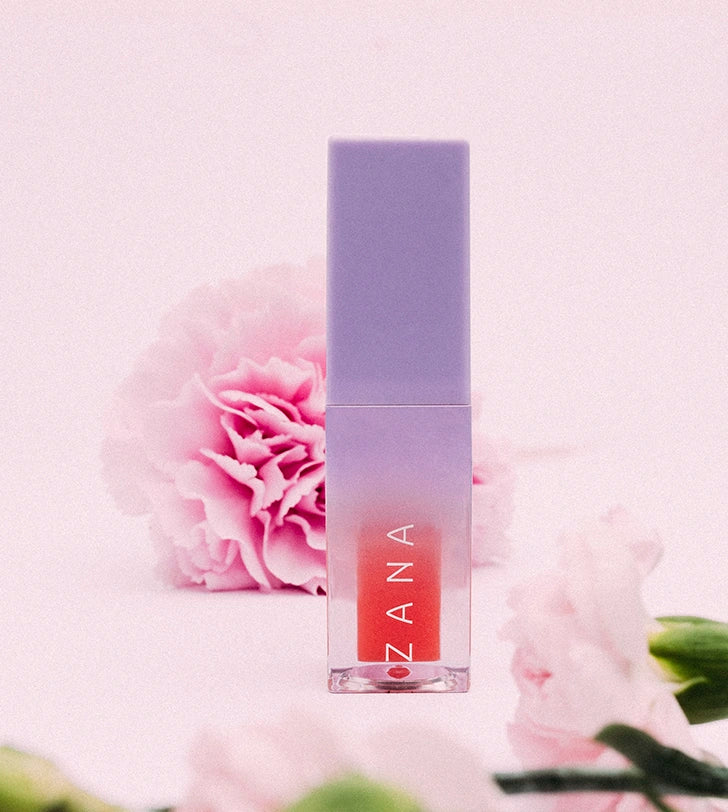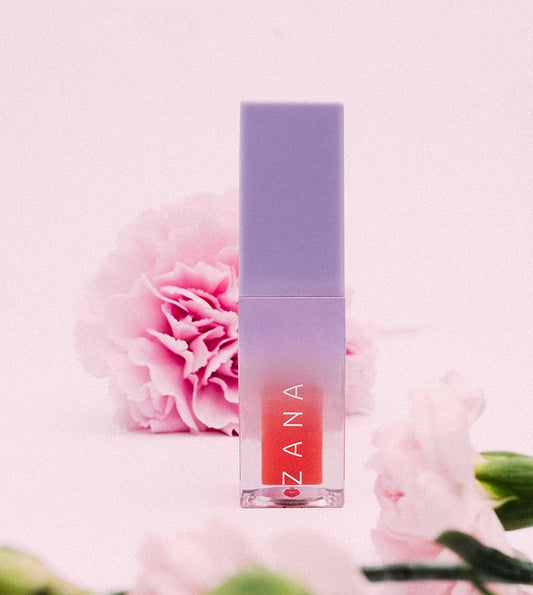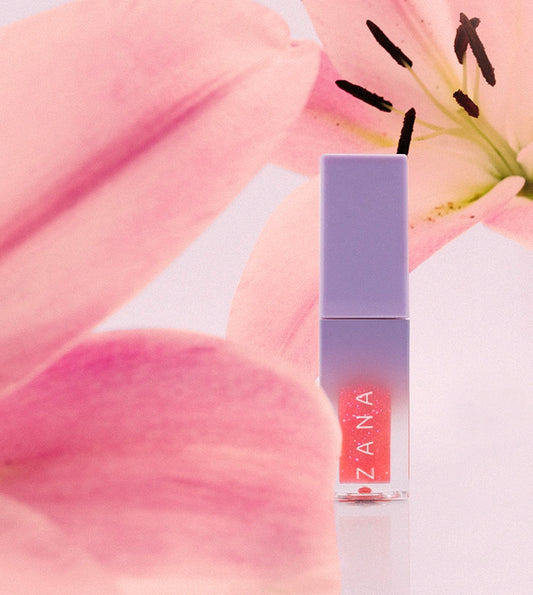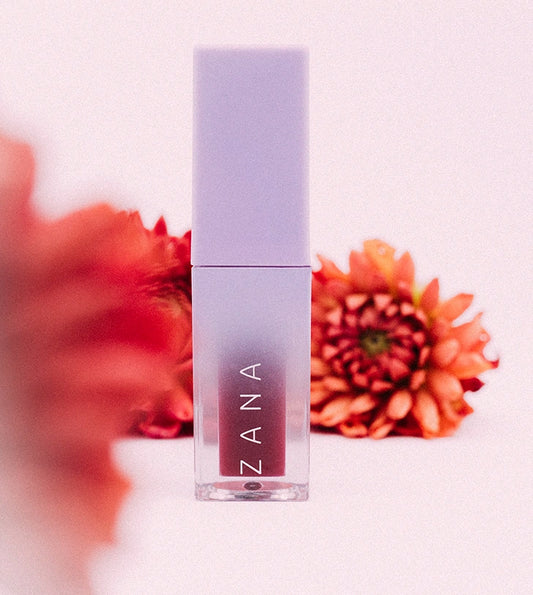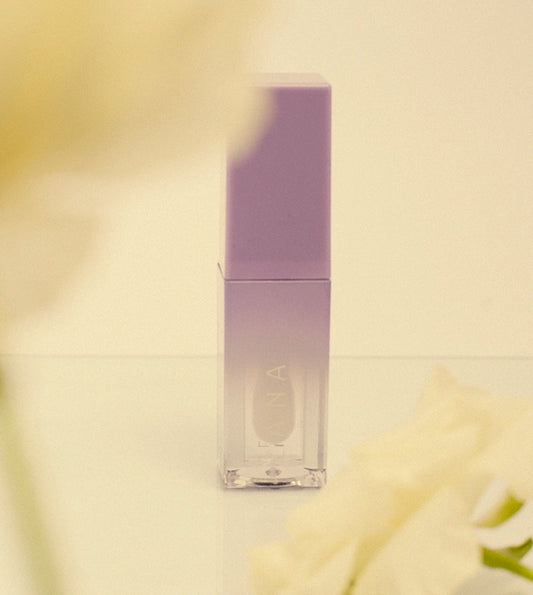
How to choose lip oil for your skin type?
Natural lip oils are becoming increasingly popular among those seeking effective and safe lip care. However, not every lip oil is suitable for every skin type. Tailoring the product to your individual needs is key to achieving the desired results and ensuring optimal lip regeneration.
Why is it worth choosing lip oil according to skin type?
Lip care is much more than simply applying balm. Lips and the delicate skin around them require a conscious approach, tailored to the specific needs of different skin types. Dry skin will require intense hydration, while sensitive skin requires gentle ingredients that won't cause irritation.
A carefully selected oil can provide relief from dryness, accelerate the regeneration of damaged skin, and significantly improve the appearance of lips. Different skin types react differently to the same active ingredients – what works well for normal skin may be insufficient for very dry skin or too intense for sensitive skin.
Natural lip care based on carefully selected oils helps avoid unwanted reactions and maximizes the benefits of daily care.
How to recognize the type of skin around the mouth?
Identifying your skin type is the first step to effective lip care. Here are the characteristics of the most common types:
Dry skin around the mouth It's characterized by a feeling of tightness, especially after washing the face. It's often accompanied by flaking of the skin, and in extreme cases, painful cracking at the corners of the mouth. The skin may appear dull and feel constantly uncomfortable.
Sensitive skin reacts to most cosmetics with redness, burning, or itching. People with this skin type often experience allergic reactions to fragrances, dyes, and preservatives. The skin may also be prone to contact dermatitis.
Normal skin It doesn't cause any problems – it's well-hydrated, supple, and doesn't overreact to standard cosmetics. Lips look healthy, with no visible signs of dryness or irritation.
Mature skin It loses firmness and elasticity. Fine lines appear around the mouth, and the skin itself may appear thinner and more delicate than before.
Remember that skin type can change seasonally – it often becomes drier in winter, while in summer it can become more sensitive to external factors. Hormones, stress, and dietary changes can also affect the condition of the skin around the lips.
What causes dry lips and the skin around them?
The best oil for dry skin won't deliver results unless the root causes of the problem are addressed. Dry skin around the mouth can be caused by a variety of factors:
Atmospheric factors are the main culprits of lip problems. Wind, frost, and intense sun strip the skin of its natural moisture. Even a summer breeze during vacation can dry out your lips in a matter of hours.
Air conditioning and heating They reduce indoor air humidity by up to 20%, while the optimal humidity for skin is 40-60%. Prolonged exposure to such conditions leads to chronic skin dehydration.
Dehydration and poor diet have a direct impact on the condition of the lips. A deficiency in B vitamins, iron, or zinc can lead to cracked corners of the mouth and chronic dryness.
Harmful habits Licking your lips can further dry them out – saliva contains enzymes that break down the skin's natural protective barrier. Using harsh cosmetics containing alcohol or menthol can also worsen the problem.
It's worth remembering that dryness problems can occur regardless of the season and lifestyle – even people who care about hydration can experience periodic lip problems.
Which oils work best for different skin types?
Choosing the right oil is the art of matching active ingredients to the specific needs of the skin:
For dry skin Intensively moisturizing oils with a rich consistency work best. Coconut oil contains fatty acids that penetrate deeply into the skin and create a protective barrier. Avocado oil rich in vitamins A, D and E, it perfectly regenerates very dry lips. Shea butter has exceptional moisturizing properties and creates long-lasting protection.
For sensitive skin mild, hypoallergenic ingredients are key. Almond oil has the lowest allergenic potential and perfectly soothes irritations. Jojoba oil Technically it is a wax, so it perfectly mimics natural human sebum. Oat oil contains anti-inflammatory compounds that soothe redness.
For normal skin you can choose from a wide range of moderate-strength oils. Argan oil contains vitamin E and has antioxidant properties. Apricot oil absorbs easily and does not leave a greasy layer on the lips.
For mature skin the priority is anti-aging ingredients. Attar stimulates cell renewal and improves skin elasticity. Rosehip oil rich in vitamin C, supports collagen production. Vitamin E oils protect against free radicals and slow down the aging process.
In the store you will find, among others, Damask rose oil, ideal for people with dry lips, and delicate mustard seed oil, suitable for sensitive skin.
How to use lip oils properly?
The effectiveness of natural lip care depends not only on choosing the right product, but also on correct application:
Application frequency – Apply a thin layer of oil 3-4 times a day, especially after meals, when lips may be more susceptible to dryness. Before bed, apply a slightly thicker layer as an intensive overnight treatment.
Mouth preparation – Before applying the oil, make sure your lips are clean. Gently exfoliate once a week to remove dead skin and facilitate the absorption of the active ingredients.
Application technique – Apply the oil from the center of your lips outward to the corners, gently massaging it in with your fingertips. Avoid rubbing the skin to avoid irritating the delicate surface.
Combining with other products – The oil can be used as a base for lipstick or as a protective layer after removing makeup. Some oils also work well as an ingredient in homemade face masks.
Storage – Store oils away from sunlight and high temperatures to prevent them from losing their properties. Most natural oils are best stored in a cool, dark place.
Home remedies to support lip care
Which lip oil to choose is one thing, but it's also worth knowing proven home methods that enhance the effects of professional products:
Regenerating peeling – Mix a teaspoon of fine sugar with honey and add 2-3 drops of jojoba oil. Massage your lips for 30 seconds, then rinse with lukewarm water. This exfoliation removes dead skin cells and prepares your lips for better absorption of the oil.
Night mask – Combine a teaspoon of honey with an equal amount of melted shea butter. Apply a thick layer to your lips before bed. The honey has antibacterial properties, and the shea butter provides intense hydration throughout the night.
Soothing compress – Prepare a chamomile or calendula tea, let it cool to room temperature, and add a few drops of almond oil. Soak a cotton pad and apply to your lips for 5-10 minutes. This remedy is great for irritated lips.
Intensive treatment – in case of very dry lips, apply the oil every 2 hours for a week, and at night apply a thicker layer under cling film for 15 minutes.
Home methods are effective and natural, but it is worth supporting them with ready-made products with proven composition and stable formula, especially those with a rich formula of active ingredients.
How to prevent dry lips and care for them every day?
Lip regeneration is a continuous process that requires daily, conscious choices:
Internal humidification – Drink at least 8 glasses of water daily, especially during periods of increased physical activity or illness. A well-hydrated body is the foundation of a healthy mouth.
UV protection – Use lipsticks or oils with natural sun protection year-round. UV radiation reflects off snow, water, and sand, increasing the risk of lip burns, even on cloudy days.
Eliminating harmful habits – Avoid licking your lips, biting them, or picking at flaky skin. These seemingly innocent gestures significantly worsen the problem of dryness.
Conscious choice of cosmetics – Read lipstick ingredients and avoid products containing alcohol, perfume, or strong dyes, which can dry out your lips. Choose cosmetics with natural moisturizing ingredients.
Regular care – Daily use of natural protective and regenerative oils is an investment in long-term lip health. It's better to apply small amounts regularly than to over-treat neglected lips.
Adaptation to conditions – During illness, travel, or climate change, increase the frequency of oil applications. Your skin needs extra support during difficult times.
To sum up
Choosing the right lip oil is a process that requires knowing your skin type and understanding its needs. Everyone's skin has different requirements—what works well for one person may not be enough for another. The key to success is patiently monitoring your skin's reactions and adapting your skincare routine to your changing needs.
Remember that natural lip oils are a long-term investment in your health and comfort. Regular use of a properly selected product not only addresses current issues but also prevents future complications.
Match the oil to your needs and enjoy smooth, moisturized lips every day. Check out our selection. natural oils and choose something for yourself – your lips deserve the best care.
